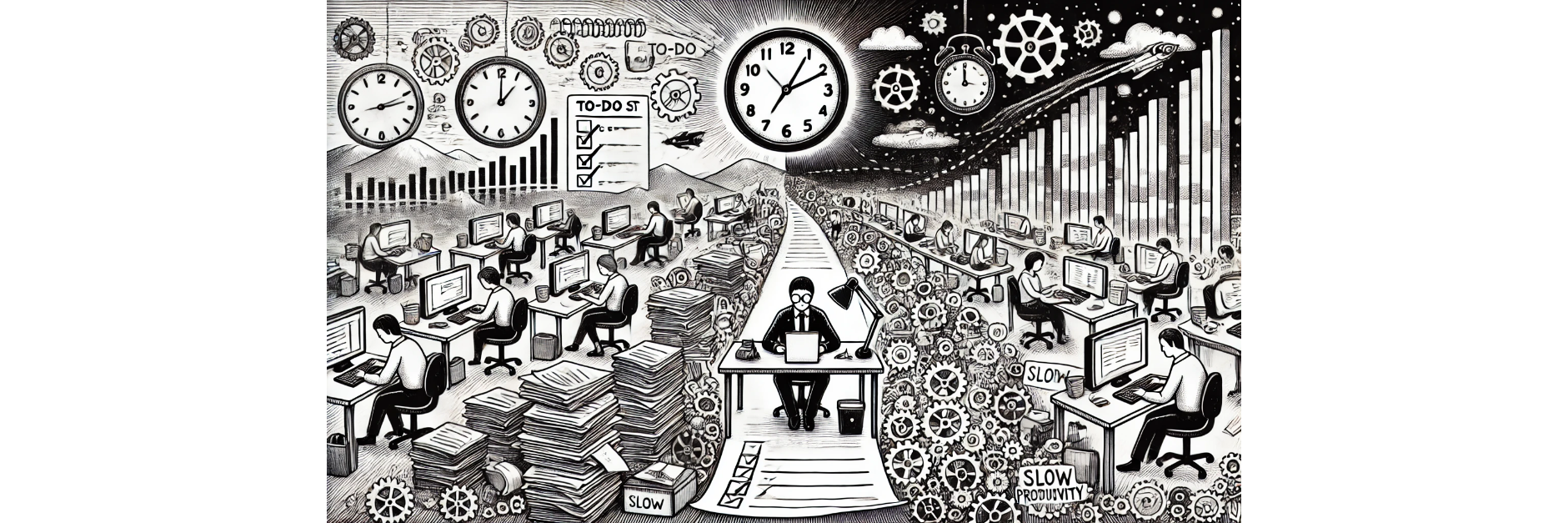Pseudo-productivity: Our Illusions of Being Busy at Work
I have a consistent routine of reading every morning. It’s something I am becoming very proud of because I’m pretty sure I’ve read more books during this career break compared to all the books I have read in the last 5 years combined. This article was inspired from reading Cal Newport’s book on slow productivity. His insights made me reconsider how I approach my work and productivity. I am halfway through the book so I may write more about my learnings from this book later on.
Pseudo-productivity is essentially the appearance of being busy without actually accomplishing much of real value. It’s a trap many of us fall into, believing that as long as we’re constantly active, we’re being productive. But in reality, this can lead to burnout without meaningful progress, especially for both Millennials and Gen Zs.
Every week, I’ll be sharing practical tips and invaluable knowledge to guide you on your path to financial independence.
The Impact of Digital Distractions on Productivity
In today’s digital age, one of the biggest culprits of pseudo-productivity is digital distractions. With the constant barrage of notifications and alerts from smartphones and computers, maintaining focus has become increasingly challenging. Research indicates that frequent task-switching can significantly hinder our ability to complete high-value tasks. According to a study, the average office worker gets interrupted or distracted every three minutes. These interruptions make it harder to engage in deep, meaningful work, leading many to mistake busyness for true productivity.
Understanding Pseudo-Productivity
Pseudo-productivity is characterised by activities that look like work but don’t actually contribute significantly to our goals.
Examples of pseudo-productivity are spending excessive time in meetings, answering non-urgent emails, or endlessly tweaking minor details that don’t impact the overall outcome. These tasks give us a false sense of accomplishment while the truly important work remains undone.
I would argue that most managers today, focus on pseudo-productivity because they don’t know how to truly measure productivity in the workplace. When famous leaders like Elon Musk push for their return-to-office policies, what they are really promoting is simply pseudo-productivity.
The Role of Workplace Culture in Pseudo-Productivity
Workplace culture often plays a pivotal role in fostering pseudo-productivity. In environments where long hours and constant availability are equated with commitment, employees may feel pressured to engage in activities that appear productive but have little actual impact. Studies have shown that companies with flexible work policies and focus on outcomes rather than hours tend to enjoy higher productivity levels and employee satisfaction. By shifting cultural expectations, organisations can reduce pseudo-productive behaviors and encourage more meaningful work.
The Trap of Being Busy
In many modern workplaces, there’s a cultural emphasis on being busy. We often equate long hours and a packed schedule with dedication and success.
However, this busyness can mask inefficiencies and prevent us from focusing on what truly matters. It’s easy to get caught in the cycle of pseudo-productivity, where we’re constantly doing something, but not necessarily something important.
Reflecting on My Work Habits
Taking a career break was a chance for me to step back and evaluate my work habits. During this time, I realized how much of my professional life had been consumed by pseudo-productive activities. The endless meetings with colleauges just to talk about work, instead of actually doing them, consumes a significant portion of my work week.
There were even cases where I had senior leaders questioning if my team members were working from home too often, which results in a lack of ‘visibility’ in the office. While I don’t ask my team to be in the office just for the sake of ‘visibility’, but the fact remains that it will be harder for me to get that pay raise and promotion that my team members deserve when my higher-ups value pseudo-productivity more than productivity.
Reflecting while reading Newport’s book gave me more clarity to identify and eliminate these inefficiencies when I get back to the 9 to 5.
Choosing Slow Productivity over Pseudo-Productivity
Reading Newport’s book on slow productivity was an eye-opener. His insights helped me learn more about productivity, particularly his emphasis on prioritising meaningful and effective work over the sheer volume of tasks completed.
Slow productivity emphasises doing fewer things but doing them better, allowing for deeper focus and higher quality results.
Strategies to Combat Pseudo-Productivity
Here are a few strategies from Newport’s book that could be helpful in shifting from pseudo-productivity to real productivity:
- Prioritise Tasks: Focus on high-impact activities that align with your goals. Use tools like the Eisenhower Matrix to differentiate between urgent and important tasks.
- Set Boundaries: Limit the time spent on low-value activities like excessive meetings and emails. Batch these tasks and handle them during specific times.
- Embrace Deep Work: Allocate uninterrupted time for deep, focused work. This means turning off notifications and creating an environment conducive to concentration.
- Reflect and Adjust: Regularly review your work habits and make adjustments as needed. Continuous improvement helps maintain focus on what truly matters.
Maybe This Is the Fulfilling Career We Seek
By recognizing and addressing pseudo-productivity, we can achieve more meaningful and sustainable results. My career break allowed me to reassess and realign my work habits. Moving forward, I’m going to experiment with slow productivity, ensuring that my efforts are both effective and fulfilling. Let’s strive to work smarter, not just harder, and avoid the pitfalls of pseudo-productivity.
Embrace the art of slow productivity and discover the profound impact it can have on your professional and personal life. It’s time to break free from the illusion of busyness and focus on what truly matters.

